Tim Spector: ‘We’re the sickest country in Europe and we’re not concerned about it’
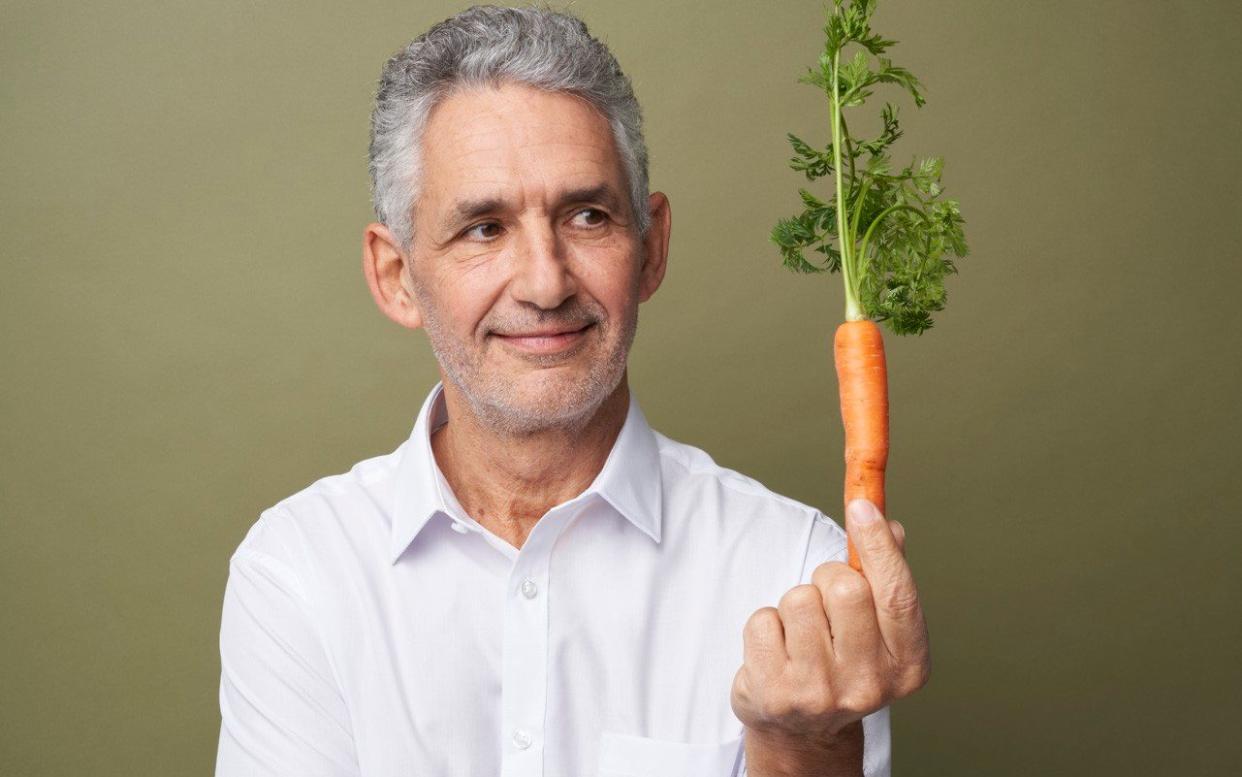
- Oops!Something went wrong.Please try again later.
- Oops!Something went wrong.Please try again later.
Professor Tim Spector had his first manicure the other day. Bashfully, he splays his fingers to present the results. Very nice indeed. ‘I had it done for a TV commercial, they needed a close-up of my hands…’ It was, he concedes, one of a number of moments recently which have forced him to ponder just how much – at the age of 65, and after three decades of unglamorous medical research – his career has changed.
Another came over the summer. ‘I was at a food festival, under cameras, demonstrating how to make kimchi for 300 people. And I just thought, “Hang on a minute…” When I was a young doctor I’d never have guessed I’d be doing that. Or Instagram Lives with Jamie Oliver and Davina McCall. Or having all these [famous] people phoning up saying they want to have lunch. Or people recognising me in the street and asking for a selfie...’
He shakes his head. ‘It’s unimaginable.’ But what, I must ask, was the TV commercial for? ‘Hmm. When does this go out?’ 30th December. ‘Then I can’t say, I’m afraid.’ I’ll just put ‘Coca-Cola’ then. Spector laughs and stares at those immaculate hands again. Definitely Coca-Cola.
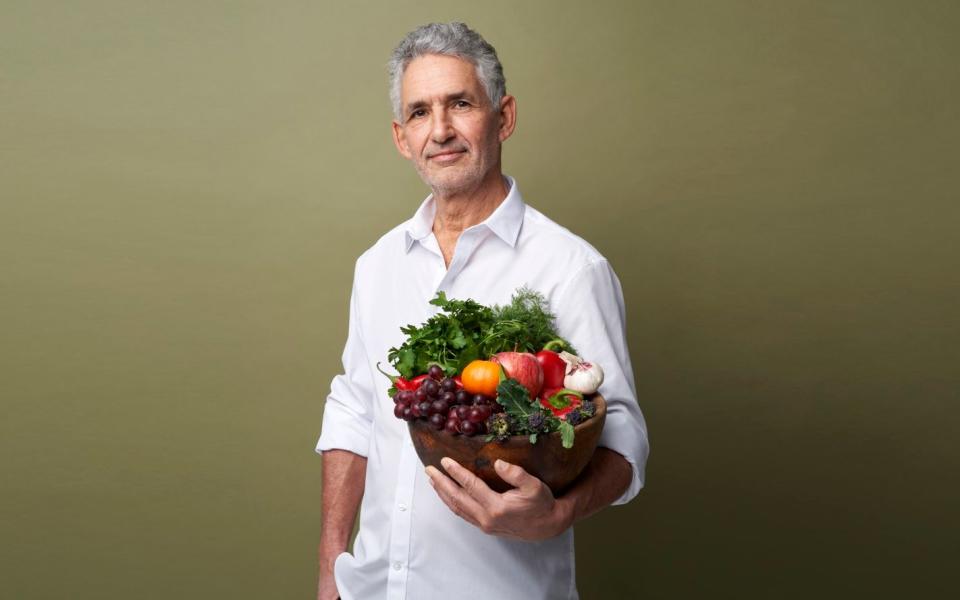
We’ve met in Spector’s office, which is found at the end of a long corridor at St Thomas’s Hospital in central London. Big Ben looms just across the river. The particular chaos of the NHS in pre-Christmas mode thrums in the buildings around us. But here in the Department of Twin Research & Genetic Epidemiology, all is calm, all are bright.
Spector certainly is. Dressed in a customary crisp blue shirt, dark chinos and trainers, he has a deep, near-permanent tan, a rich sprawl of cauliflower-white hair, light stubble and an almost pathological equilibrium. On a middle finger is an Oura sleep-tracking ring. He usually gets around seven hours.
This department has housed Spector’s TwinUK study – one of the most extensive collections of data about identical and non-identical twins in the world – for 30 years, and today serves as a useful reminder that he is, in fact, still a working academic. ‘It’s become more of a communal office now, as I’m only in one or two days a week. I’ve got three jobs, you see…’
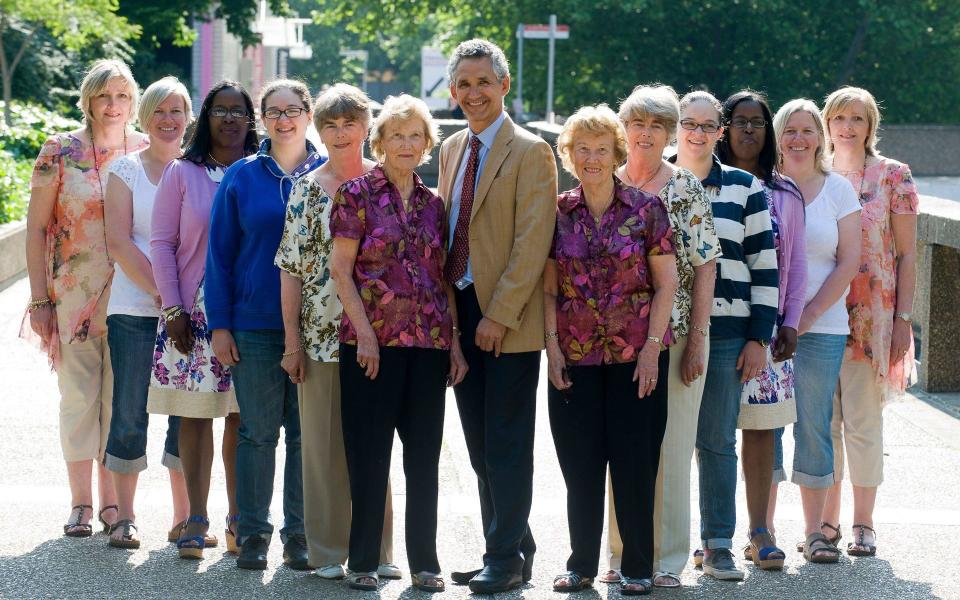
Three at least. Spector remains a professor of genetic epidemiology at King’s College London, where his work has made him one of the top 100 most-cited scientists in the world. Alongside that, he co-founded the personalised nutrition app Zoe, which is now improving the gut and metabolic health of more than 130,000 paying members since its launch in April 2022.
And he writes best-selling books – including Food for Life and Spoon Fed, both of which involved myth-busting the most popular diets, eviscerating the idea of calorie counting and taking the fight to big food companies. His work in recent years has caused many to fundamentally rethink what ‘healthy eating’ means, to the extent that he’s become perhaps the most respected voice in the ever more-crowded larder of popular nutrition gurus.
It also means his wisdom is in fierce demand. People want more books, live appearances, TV adverts, in-person advice and, perhaps above all, podcasts. He frequently appears on Zoe’s own chart-topping ‘Science & Nutrition’ offering, but is also interviewed on others, including twice for Steven Bartlett’s Diary of a CEO. Combined, they’ve been viewed on YouTube five million times. Each is well over 90 minutes long.
‘Everybody thinks I was only discovered in January on Bartlett’s programme, but actually I’ve been doing things for years,’ Spector says, with mild frustration. ‘This year, though, everything has massively kicked off, at three times the speed.’
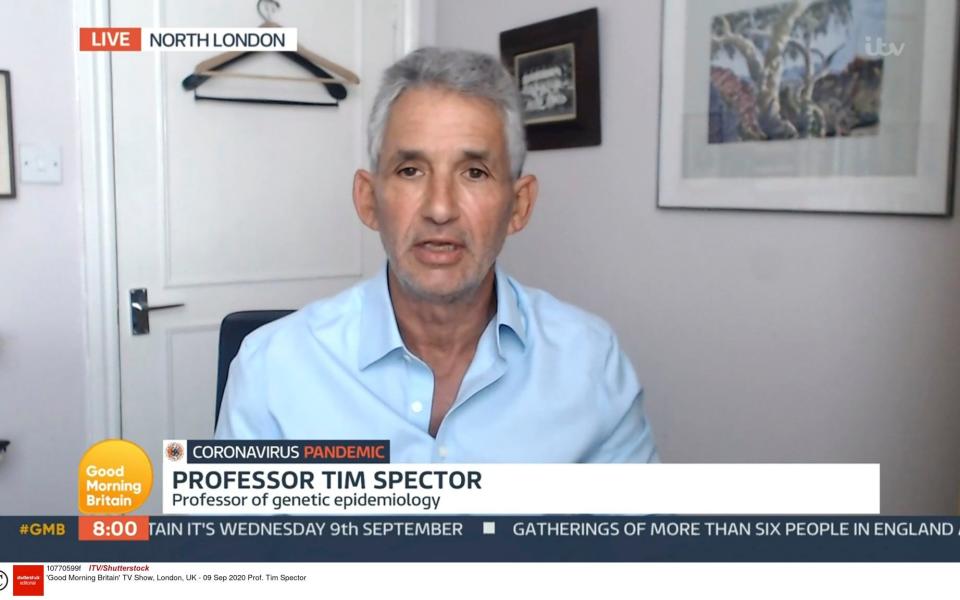
To protect against having any time to relax, he will soon add a new Telegraph health column to his weekly to-do list. He is excited about it. Or as excited as Spector gets, which means a small smile and near-imperceptible widening of the eyes. Expect sensible advice and hearty rants, especially about the ‘disaster’ of the government’s food and public health policies.
‘I’m quite opinionated. I’ve found out that one of the reasons I’m popular is that I state my mind. Most academics stay on the fence, or have lots of caveats,’ he says. ‘You have to oversimplify, but there are lots of messages I feel I can get across to people who’ve not heard them before, and some of them are very important. We’re the sickest country in Europe and we’re not that concerned about it, so I want to empower people to do something about it.’
Spector has always been opinionated. ‘My teachers at school would probably say that, yeah. I wasn’t popular with them...’ Growing up in North London, his mother – ‘Australian, totally sporty’ – was a physiotherapist and his father – ‘totally unsporty, intellectual, Jewish’ was a pathologist.
Sciencey, then. ‘Yes, though my brother [Andy, who’s two years younger and lives in Brighton] went to art college, then did textiles, photography, a bit of meteorite hunting…’ He pauses. ‘He also holds the Guinness World Record for the most crisp packets.’ Sorry, what? ‘He’s got 3,000. Some of them are framed. He had 6,000 but some rats got into his attic.’
So dry is Spector that I am left unsure as to whether he’s pulling my leg or not, but once I’m back in the safety of the hospital lift I Google it and, sure enough, there’s a photograph of a man who’s clearly a Spector, buried up to his neck in his crisp packet collection, which the Brighton Argus informs us is worth £20,000.
‘We’re very different characters,’ Spector says, unnecessarily. Too right, you definitely don’t eat any crisps. ‘Er, I like crisps. Just not… 3,000 of them.’
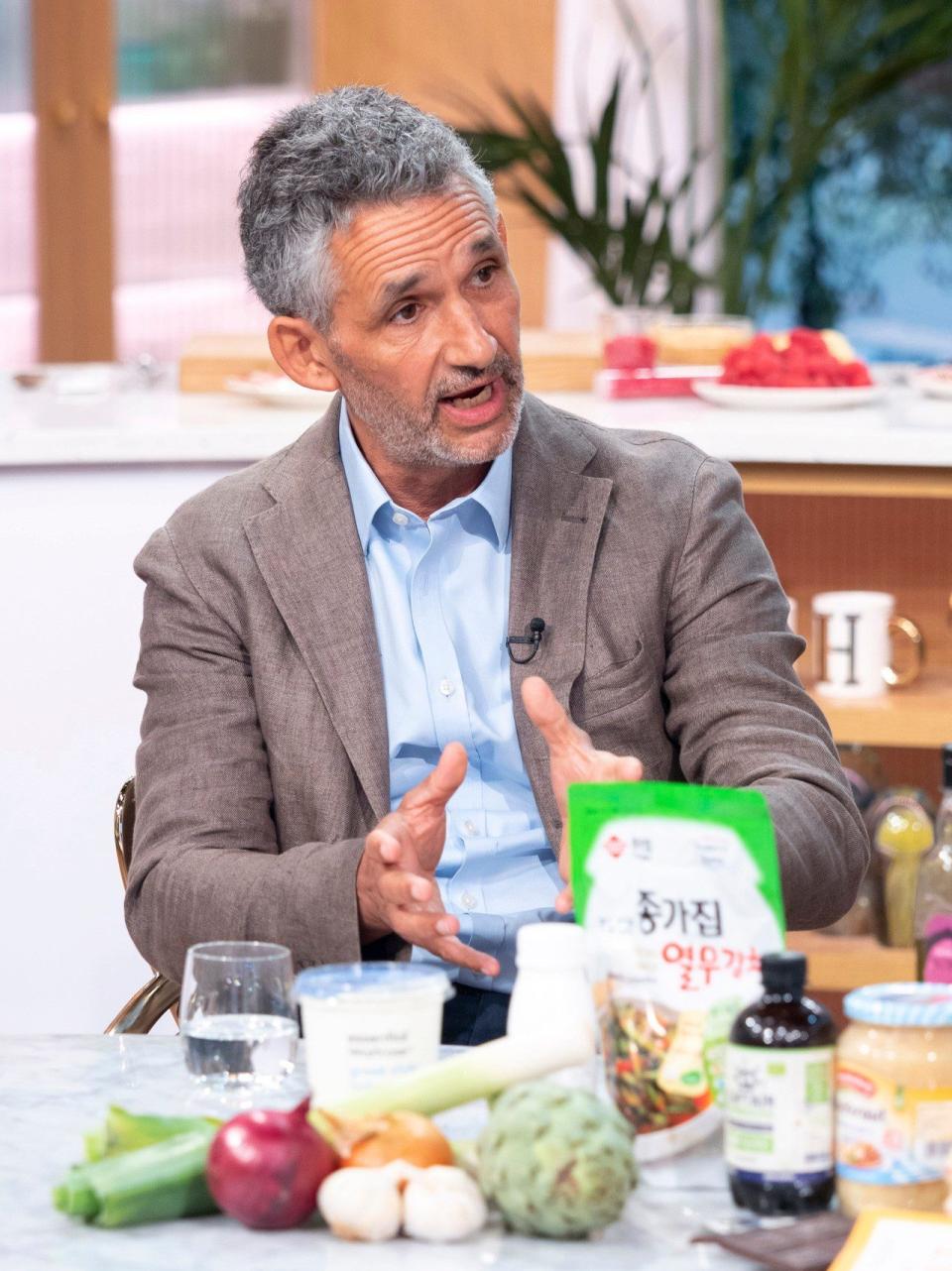
Out of instinctive rebellion against his father’s wishes, as a teenager he resisted becoming a doctor, only giving in at the last moment by ‘scraping into medical school with grades you’d get laughed at today’, including a D in physics. That medical school was St Bartholomew’s in London, where he preferred the social side of things.
‘Sports, drinking, comedy… I took part in sketch comedy at cabaret nights, doing sketches and songs. It was started by Graham Chapman of Monty Python. Probably doesn’t exist anymore, it was all very non-PC.’ (He remains a keen fan of the arts, leaving our meeting to watch ‘a gay retelling of the Nutcracker’ at the Southbank Centre.)
Rote learning wasn’t for him, but he took to hands-on clinical work, and was taken with one early project looking at whether coffee is good for people. The answer, as he stresses often these days, was yes. ‘I liked that sort of thing, it was a bit like being a detective, I got a real buzz from it that I never got from rote learning biology essays.’
Once qualified, he took a junior doctor role with Barts in Hackney, east London, before rotating to Cliniques Universitaires Saint-Luc Belgium. Bluffing through the interview with bad French, he ended up with 14 cardiac patients and une très grande barrière linguistique between him and them.
Quite brave, really. ‘Yeah, but I was fluent after about three months. And I got a wife out of it.’ At the time, Veronique Bataille was a medical student who wooed Spector with a box of croissants, before ‘showing me the good restaurants’ in Brussels. ‘In the 1980s, even what they served in their hospital canteen was better than what I’d had in restaurants in London.’
After a year, Bataille moved to London to be with Spector, and went on to work her way up to consultant, specialising in melanomas. They married in Belgium in 1988, and have two children: Sophie, 34, an immigration lawyer, and Tom, 31, who works for a medical start-up.
As a genetic epidemiologist, Spector’s primary interest has involved researching what role our life choices and life events play compared to our genes. His TwinsUK registry allowed him to study two people with remarkably similar genes and ask why one may get diabetes or cancer, or one may be slimmer than the other, or how each reacts to certain foods.
By 2012, this work had revealed that of all the things different about twins, they are most distinct in their microbiomes: the collection of millions of microbes, fungi, viruses and other single-celled organisms that teem around inside our bodies, but particularly our guts. Spector likens it to a rainforest: it only blooms if it has the right diverse balance of organisms. Give it too much of one thing, or the wrong thing, and the balance will be off, potentially seeding long-term damage.
The real key to good nutrition, then, might lie as much in learning about our individual microbiomes as it does in adhering to blanket rules, such as religiously observing calories in and calories out. Spector was preparing to look further into this when he suffered a small stroke while skiing with his family in the Alps. His symptoms were relatively mild, but it left him determined to sort out his health.
‘With the retrospectoscope on, that was the turning point. One of the key human drivers is selfishness. We all like to think we’re altruistic, but if you really want to focus, it’s quite good to have an event. I had an unexplained real event, and high blood pressure, and wondered what I should do,’ he says.
‘I discovered we knew nothing about how to give advice about nutrition, and that most of the stuff out there, especially on government websites, was plain wrong. I thought we must be able to use this new science to think about food in a new way.’
So began a prolonged period of nutritional self-experimentation, including a brief flirtation with veganism, while he fundamentally reassessed his diet. As his research continued, he wrote a book, The Diet Myth, including in it research gathered from an experiment in which his own son, then a university student, ate solely McDonalds for 10 days.
He ended up feeling sick, in a low mood, lacking in appetite, looking jaundiced, feeling constipated and losing 1,400 bacterial species in his gut. Other than that, he had a terrific time. ‘I took advantage of a student, really,’ Spector says.
Today, the health of Tom’s microbiome is still well below average compared with his father, who is in the top five per cent according to Zoe’s scores. Do either of them regret the experiment? ‘Um, I think so, yes. I really want him to get back. He’s still young, he has time to improve it, so my goal is to get him into the top five per cent with me.’
For the previous 20 years, Spector would eat a banana and muesli with orange juice for breakfast, then a supermarket sandwich and crisps for lunch. He will now often have a black coffee first thing, some natural yoghurt with kefir, chopped nuts, fruit and seeds at around 11am, a lunch of perhaps a salad or avocado on toast, and a vegetarian curry for dinner - aiming to eat 30 plants per week (that includes herbs and spices).
‘It’s always different, but people are forever asking me to outline what I eat in a day. Part of the point is that you should always be varying it.’
I ask if I can show him what I ate for breakfast. Before he can answer, I put a berry-flavoured protein bar and a banana in front of him. He picks up the bar by the tips of his fingers, as if it is radioactive, or evidence at a crime scene.
‘Well, anything in a plastic wrapper with what we call “health halos” is generally bad. It says on it “high in fibre, high in protein”, which is an immediate issue. And the list of ingredients on the back is a paragraph long – that tells me all I need to know about it. It’s ultra-processed food.’
I am the typical profile of somebody Spector comes across a lot: young(ish), and thinks they’re health-conscious but really I just exercise lots, so feel I can eat anything. ‘You go to the gym, you eat this and think you’re done. That’s nonsense. You’re not protein deficient. And the banana is OK, but it causes a sugar spike in me, so I try to vary it with different fruits.’
Almost nobody is protein deficient, yet it dominates nutrition supplements, being easy to add to things and even easier to market to young vain fools like me, usually at a vast mark-up. Spector despairs at the rise of the protein supplement industry, especially as we have ‘a fibre crisis’ in this country. He is just as disparaging of meal replacement powders and almost all supplements.
I wonder aloud at what it’s like to have Spector at the feast. I pity the poor dinner party hosts who have to work out what to feed him. ‘Well, I don’t get invited to dinner parties nearly as much as I used to… It’s really upsetting. I’m not critical at all, but they think I won’t like lasagna,’ he says.
‘Actually, on special occasions, all bets are off, and there’s nothing I wouldn’t eat if it was going to make it socially awkward. It’s much more important to sit down for a meal with friends and be sociable than worrying about an occasional lapse.’
Ideally, a lunch table filled with different dishes, allowing people to choose what and how much they eat, and meals stretching over many hours, is the set-up he’d consider healthiest. Mediterranean and Middle Eastern nations do this well. One-pot meals, though convenient, are generally worse.
He isn’t strict in any way, he insists, and follows ‘about a 90/10’ rule when it comes to indulging – be it meals out, chocolate or alcohol (on the latter, it’s mainly red wine). After six years of not eating meat, he now does once a month or so, after realising how it can be beneficial in small amounts, so long as it is good quality.
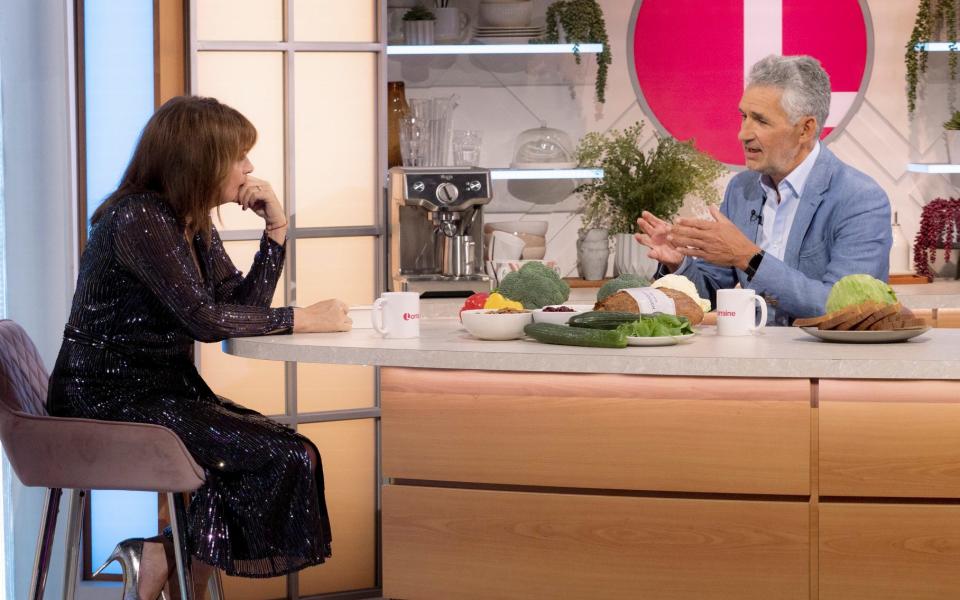
‘What I’m trying to do is tell everybody they can have this lifestyle, you don’t have to give anything up that you love. You can’t alienate people by being too dogmatic, this should be a pragmatic view of food for life, and that’s got to include the pleasure of eating,’ he says.
An inveterate fermenter, at home he makes his own kombucha, sauerkraut and kefir, and adds a handful of seeds to basically everything. He is also a keen cyclist, spending summers clocking big miles in Spain, where he goes to write, and even partakes in the odd mid-ride lager. Generally, he does the cooking. How’s Veronique’s microbiome?
‘Hers actually is nearly the same as mine, which really annoys me, because she eats all sorts. She has a good baseline diet but then goes out and has Belgian cuisine like steak and chips… The key thing is that she always enjoys her food.’ He almost manages to say this without envy.
The idea for Zoe was originally presented to him. George Hadjigeorgiou and Jonathan Wolf, an engineer and a tech specialist respectively, saw Spector give a talk on his twins research and approached him about developing a personalised nutrition app. After raising the requisite £7m in 2017, progress was interrupted by Covid. In March 2020, a new side project, a symptom tracker app, was set up.
‘We just did a short term pivot purely for charitable purposes, thinking the government would take it over. But it never did, so we kept working at it, and became two teams eventually.’ The Zoe Covid symptom study has since seen millions of users logging their data via an app to help gain a better understanding of how Sars-CoV-2 spreads. ‘We had this realisation that the more you give people, the more data they give you back. They want to trust someone. Nobody thought that was possible, they thought oldies can’t use an app. Completely wrong.’
In a way, he says, ‘it showed us the failings of the NHS, and why people don’t give them their data, because this little start-up suddenly had more trust than most British institutions.’ He cannot hide his exasperation at the bureaucratic hurdles and risk-averse nature of the NHS over the private sector.
The fear over data protection, often used as an excuse to not embrace technology, is a case in point. ‘We are essentially killing people because of our mentality in this country. How is it that in this day and age, we have an NHS that cannot talk to each other? Hospitals still have fax machines. That’s the cost of being worried about data protection.’
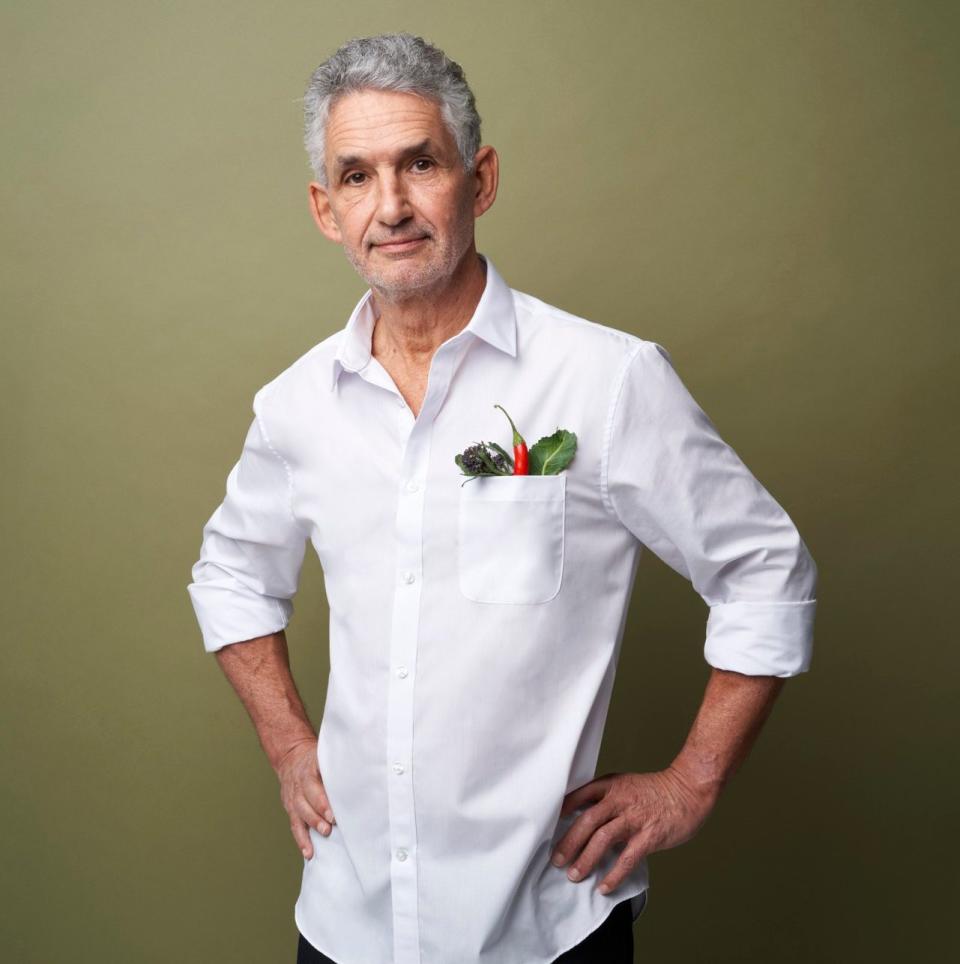
Zoe is now back on track, with fans ranging from McCall and Bartlett (an investor) to Carrie Johnson. The appeal is obvious, given it is partly the brainchild of Spector, whose advice is trusted more than most health app founders, but joining is hardly cheap: a starter kit is £299.99, while membership starts at £24.99.
For that, members begin with an at-home test, involving a continuous glucose monitor, various kits for stool and blood sampling, and packets of standardised muffins that reveal how your body responds to different doses of fat and sugar. After two weeks of testing, users can learn their personalised scores for thousands of foods, with bespoke nutrition coaching and ideas.
‘The only people we don’t recommend it for are people with eating disorders. It’s not a strict regime of logging and tracking, but you can overdo anything,’ Spector says. The risk that users obsess over numbers is a criticism that apps like Zoe have to accept, but his argument is that traditional dieting, which sees all food as numbers rather than talking about quality, or experience, or how it’s affecting your body, is much worse.
It is expensive, though. ‘Well all products based on technology have to start more expensive at the beginning. We’re thinking about options for cheaper versions, but to make up for that we offer lots of free things, like the podcast.’
The perception, I tell him, is that it’s just for middle-class yuppies who already queue for sourdough at Gail’s and have the time and money to purchase arms full of fresh produce. ‘Well, that also says something about how much we spend on food as a country. We spend less of our GDP on food than any country in Europe. So once we start to value our nutrition… Besides, a Starbucks a day is the same price as a Zoe programme.’
He’d ideally like to ‘get this to millions of people’, so hopes he can one day work with the NHS. Also, he hastens to add, it’s not actually turning a profit yet. Zoe made a pre-tax loss of £10.5m in the year to the end of August 2022, up from £7.9m the year before.
There are now 400 employees, a lot of ‘money in the bank’, but ‘we’re definitely burning more money than we’re bringing in, so we’re a loss-making growing company. That’s the other key, when people ask when we’re going to cut prices. I think investors will expect us to make some money before giving theirs away…’
Still, he says, the nature of the app is that it gets better the more that people use it, ‘and that’s the exciting thing about it, it’s evolving all the time [...] And the scale is the exciting thing about doing science in a tech company. It’s really cool.’
He is beginning to sound like a tech bro, but he’s only just getting used to becoming a minor celebrity. ‘People say “Oh my God, you’re Tim Spector!” Or just thank you, either for Covid or for Zoe. That never used to happen. It’s very hard for me to go to a railway station or an airport without people wanting selfies.’
A new year dawns. Should we all be aiming for a new you? ‘No, but it is a time to experiment, to look at yourself and try different ways of eating, try new things in the supermarket, experiment with eating times, see how you are skipping breakfast or doing time-restricted eating, order fermented food once a week…’ he suggests.
‘It’s not about saying “Right, I’m not eating cake”. It’s easier to bring new things into your life than to exclude things. Definitely don’t say, “By February 1st I want to weigh X stone.” Just do healthy swaps, like you and your protein bar. Swap it for something that doesn’t make you more hungry and your teeth fall out.’
All right, all right. Ultimately, he urges us to ‘reject the dogmas’ around health in 2024. Eight hours of sleep; two litres of water… ‘Don’t just accept this, reflect on how your body reacts to things.’
Resolutions time, then. ‘Ugh, to not make any. Moderation in moderation,’ he says, reflexively. Then he thinks a little more. ‘No, there must be one... Oh, I need to improve my knife skills. I’m going to be on TV more, and people are always asking me to chop onions. I’m pretty hopeless at the moment.’
More close-ups. That may have been the first manicure Tim Spector has had, but whether he likes it or not, I’d wager it won’t be the last.

